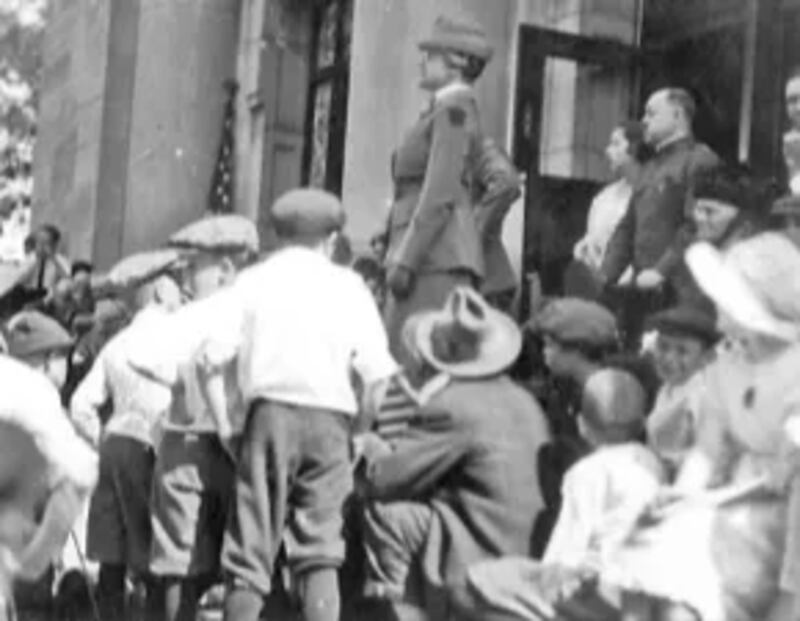Edith Smith Harrison was already well-accomplished when she decided to become a YMCA canteen volunteer during World War I.
At 43, she had already become one of Illinois’ first female lawyers, a member of the Smith, Smith and Smith Law Firm.
She left letters behind, letters shared during a Grundy County Historical Society event by her great-great step-granddaughter, Barb Boma, who said she can hear her grandmother’s voice through the page. The opening page sounds like it comes from a lawyer, too.
“For the benefit of those who might expect to find in the following pages an abbreviated history of the World War, or a chronicle of the big events that happened out on the front, this information is here to upend it. Not a single engagement, conflict, combat or encounter of any kind is recorded in these letters. Only six of them were written before the armistice was signed. They contain only a little bit of human nature, vary human nature, and were written without the thought of publication by one who signed up for the frontline service but who, like her beloved doughboys, had to go where she was sent.”
The Smithsonian describes the YMCA canteen as a morale-boosting endeavor. When the U.S. joined World War I, the YMCA worked alongside the army to feed soldiers, provide comfortable spaces for them, and keep them entertained.
“While it is the constant duty of the women to transform bleak, muddy huts into popular and attractive gathering places, and to prepare and serve hot coffee, chocolate, soups, sandwiches, doughnuts and pies, the great purpose is to bring cheer and comfort into our distant camps and to create there the spirit and atmosphere and influence of the American home,” reads a 2018 article from the Smithsonian.
The Smithsonian said that women were also highly encouraged to pay their own way from their hometowns to New York City. There, they were evaluated for overseas duties. Upon acceptance, they paid for their uniform and clothes, equipment, and housing, and they had to have their own spending money.
According to a recruiting pamphlet, it cost $2,000 to “transport, outfit, and maintain a woman worker for one year. She should figure it will cost her at least that amount.”
Boma said Smith Harrison never once said a word about her service overseas. She only found out her grandmother, Ruth Huseby, had taken the time to type out all of Smith Harrison’s notes after Smith Harrison passed away in 1962.
In these letters, Smith Harrison recounted that she found the “humdrum routine of everyday army life an infinite variety of joy and sorrow, comedy and tragedy, humor and pathos as she looked out across her canteen counter into the faces of her soldier boys in that never-ending chocolate line.”
Smith Harrison also recounted her trip by boat from the United States to Europe.
“I can tell you right now that if you ever want to see your living sister again, you can come on over,” Smith Harrison wrote. “I have decided that if I ever put my foot on the terraform again anywhere, even in no man’s land, I’ll keep it there.”
Things for Smith Harrison grew more pleasant once she was back on land, though she said she didn’t like that she had to wear the same clothes for multiple days at a time.
“I have seen so many wonderful things and strange and new sensations so crowded in upon me that I am bewildered,” Boma read. “But one pack stands out in a golden, unmistakable relief, and that is I am glad I came.”
Smith Harrison lived a long life after her service, living in Morris until she passed away in 1965 at the age of 91.
The letters cover much of Smith Harrison’s overseas activities, and those interested in reading more should visit the Grundy County Historical Museum at 510 W Illinois Ave., Morris, where copies of the letters are available to read.

:quality(70)/s3.amazonaws.com/arc-authors/shawmedia/744709d3-0d08-4f13-a8f2-47f3f8ea9de6.png)